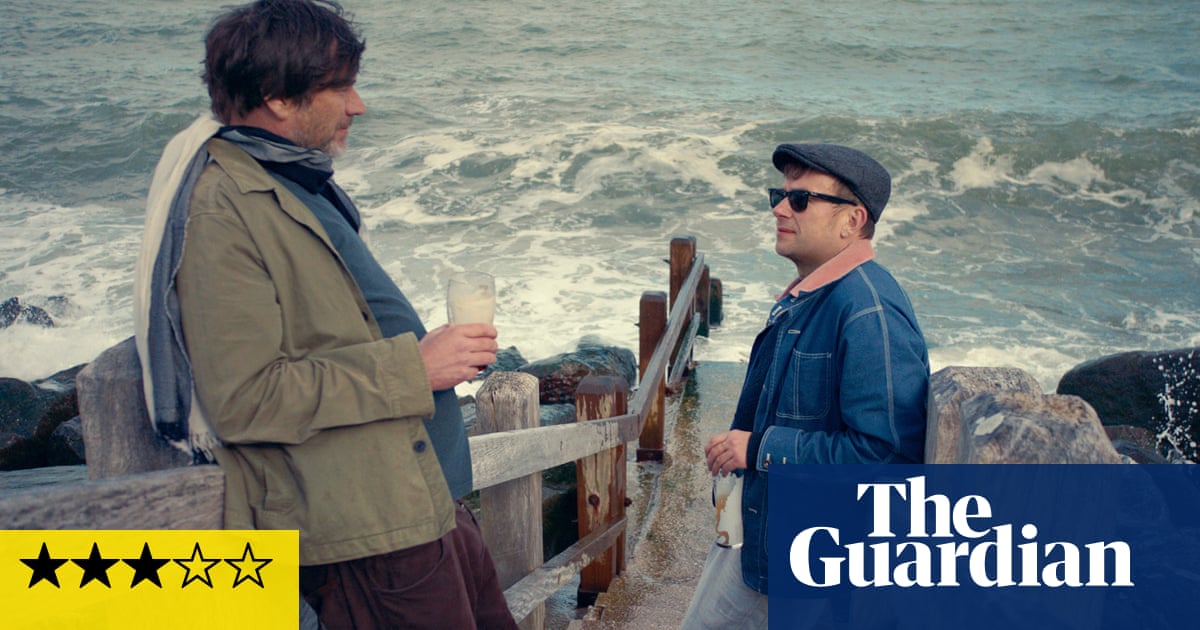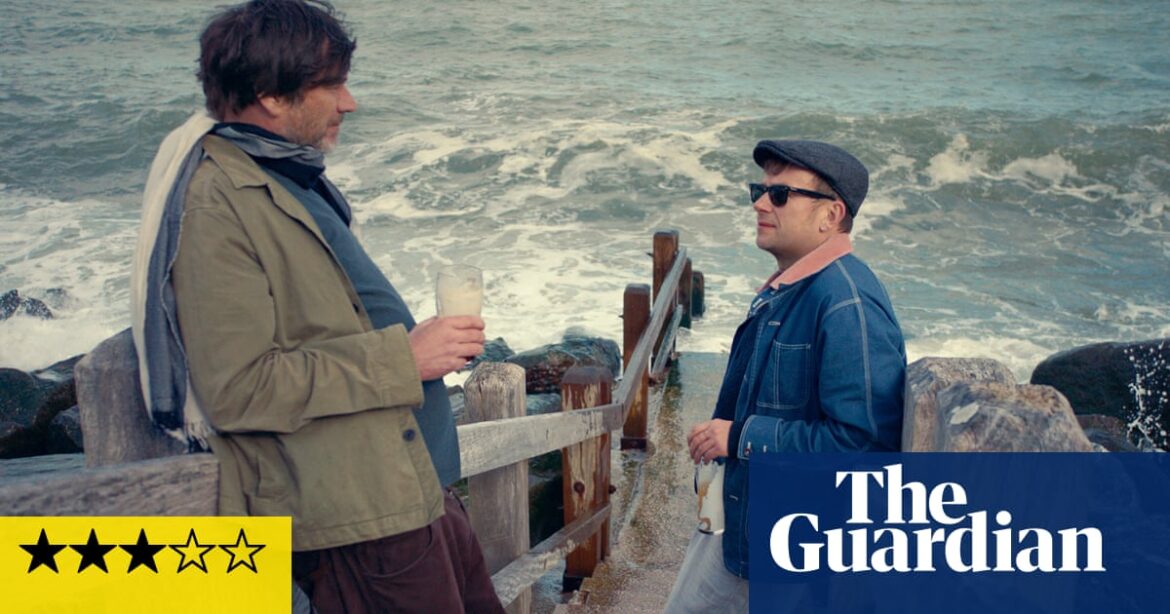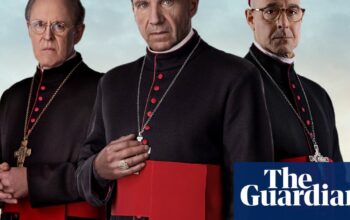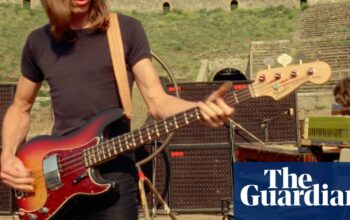
The Blur fan does not want for documentaries. From the ramshackle Starshaped in 1993, which captured these Britpop Monkees pre-megastardom, to the slick New World Towers in 2015, this is a band that knows what the camera wants: deadpan daftness and onstage hijinks interspersed with melancholic reflections on age and Englishness. The 2010 doc No Distance Left to Run showed the quartet reuniting after a prolonged estrangement: “Let’s get the band back together one more time!” growled singer Damon Albarn. This latest look-back-in-languor can’t do much more than give the concept another run around the block, with added early archive footage. Now the band are back together again after a second prolonged estrangement, and they have a new dragon to slay: Wembley stadium. “The less we do, the bigger we get,” observes drummer and current Mid Sussex Labour candidate Dave Rowntree.
Armed with a new album (The Ballad of Darren), they play assorted warm-up shows – Wolverhampton! Eastbourne! – as well as a homecoming gig in Colchester, Essex. Here, Damon (looking like Albert Steptoe) and guitarist Graham Coxon (sounding like Dudley Moore) find that the music room at their former comprehensive has been named in their honour. Their suggestion that its ambience might benefit from some paisley wallpaper and a bowl of weed is met with muted horror by the head teacher.
Then it’s off to Wembley for two nights and a combined crowd of 180,000 fans. If that all sounds like a walk in the Parklife, the film is not without suspense. Will the gigs go ahead now that three of the four band members have dodgy knees? Will the prolific Damon find himself sufficiently stimulated? (“If you don’t keep him focused on the job in hand, he’ll literally write another opera,” marvels chain-smoking bassist and cheese-maker Alex James.) Will Alex’s punnet of farm-grown tomatoes meet with his bandmates’ approval?
In place of the long-gone messiness that made Starshaped so compelling is a geezerish sentimental sheen, a look-how-far-we’ve-come self-regarding awe, which chimes with the title song but wears thin over 105 minutes rather than three. The lack of any interesting structural or film-making choices doesn’t help, though the director Toby L wisely knows to hold the camera on Alex’s forlorn expression after he laments, of a recent night on the lash, that “there’s always a really good reason not to go to bed”. The decision to fillet or truncate every song, though, proves to be depressingly business-minded: complete numbers are being held back for a full-length concert movie later this year.
Throughout the film, the band remain affable company. Like Pet Shop Boys, they are relics of an age when pop stars were capable of droll copy, rather than just the controversial kind, even if there is a lot of waffle to wade through. “Ours is a brotherhood that has been sustained by a musical relationship … Music is a complete abandonment of the ego, and you’re just one of billions of atoms in that space.”
The one exemplary moment belongs to someone other than these four wealthy white blokes. Pauline Black, singer with 2 Tone stalwarts the Selecter, prepares for her support slot at Wembley by reflecting on why she’s still plugging away after all these years; she says that the racism, sexism and various other isms that seemed to have been vanquished are now back again, and as pernicious as ever. It’s a reminder that not everyone has had it as easy as the likely lads of Blur, and a salutary wake-up call amid the film’s popscene daydream.
Source: theguardian.com



